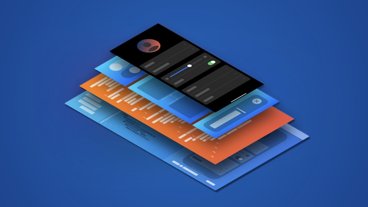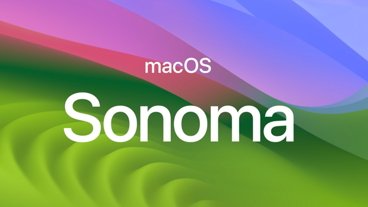Sources detail new features in Apple's first beta of Mac OS X 10.7 Lion
People familiar with the early software shared details with AppleInsider on what Apple has detailed as "Major Features" in Mac OS X 10.7. Also provided to developers were a list of application features in Lion, which is set to arrive this summer.
Included below are new features and details on Lion. For more on other features revealed on Thursday, including AirDrop and FileVault, see the previous report on Apple's announcement on the release of the Mac OS X 10.7 Lion developer preview.
Application Persistence
After a restart, Lion automatically relaunches applications that were open when the user chose Log Out or Shut Down. The system also automatically restores the state of applications that are relaunched after a restart, including the size and location of a window, selections and contents.
Much like multitasking on Apple's iOS, Mac OS X may terminate an application behind the scenes when it goes unused or has no open windows. The application usually relaunches instantly when the user accesses it again.
Users can still choose to manually quit an application, but Apple has reportedly told developers that quitting is no longer necessary.
Automatic Document Saving and Versioning
In applications built in to Mac OS X 10.7, users are no longer required to save documents explicitly or be concerned about losing unsaved changes. A simple override enables this feature in document-based Cocoa applications.
Mac OS X 10.7 automatically writes document data to disk as necessary so that data displayed in a document window is always the same as the document data on disk. A file coordination mechanism maintains sequential access to files.
Applications that support automatic saving also support document version history browsing. Browsing previous versions of a document is accomplished by choosing "Browse All Versions" from the pull-down menu at the right end of the menu bar.
Mac OS X File Coordination
File coordination allows an application to access files and directories in a way that is serialized with other processes' accesses of the same files and directories. This prevents inconsistencies due to overlapping reads and writes.
Full-Screen Application Enhancements
The first Lion beta also adds support for full-screen mode through methods in the NSApplication and NSWindow classes, and the NSWindowDelegate Protocol protocol. Full-screen support is off by default, but an application can turn it on with a method call.
Turning on the support for full-screen mode adds an "Enter Full Screen" menu item with associated action methods to the "View" menu if it exists. Otherwise, it is added to the "Window" menu.
Also added is a new option for full-screen presentations. NSWindow full-screen support includes a window style mask and notifications upon entering and exiting full-screen mode. It also provides programming interfaces for implementing custom animations that are shown when an application enters and exits full-screen mode.
The NSWindowDelegate protocol allows the window delegate to control the full-screen content size and to provide a custom set of presentation options to be in effect while its window is the primary full-screen window.
Overlay Scrollbars
Overlay scrollbars in Lion are similar to those in iOS, with unique behavior (which users can override, if they choose, in System Preferences). With the new scrollbars, if all of the user’s pointing devices support both horizontal and vertical touch scrolling, the scrollbars are hidden during normal use. They will appear as an overlay on top of the window's content while the user is scrolling, and remain visible briefly to allow scrollbar dragging.
If a user has at least one external pointing device that does not support scrolling, the "legacy scrollbar" is displayed at all times and the usable space in the window is reduced, as in previous versions of Mac OS X.
If the user has no external pointing devices attached, the trackpad settings control the scrollbar behavior, and if the user has disabled scrolling for the trackpad in System Preferences, legacy scrollbars are used.
Application Features
Mac OS X 10.7 Lion also packs new features for built-in applications. People familiar with the first beta released on Thursday shared details on the highlighted features.
- Safari
New Process Architecture: Lion adds a new process architecture that separates its rendering process from its application process. This aims to make Safari more responsive, stable and secure.
Plug-in Support in Safari: All browser plug-ins will run in their own process, improving browser stability and security. Netscape plug-ins continue to work in Safari with no modification. Safari does not, however, support WebKit plug-ins. The WebKit plug-in API is not compatible with this new process architecture and is being deprecated. Plug-in developers currently using the WebKit plug-in API are recommended to adopt the Netscape plug-in API in order to be compatible with Safari on Mac OS X v10.7.
- The Finder
In Mac OS X v10.7, the following files and folders are now hidden: /lost+found, $HOME/Library
For more, see AppleInsider's previous coverage:
 Neil Hughes
Neil Hughes










 Malcolm Owen
Malcolm Owen
 William Gallagher and Mike Wuerthele
William Gallagher and Mike Wuerthele
 Christine McKee
Christine McKee
 William Gallagher
William Gallagher

 Marko Zivkovic
Marko Zivkovic









